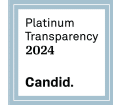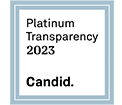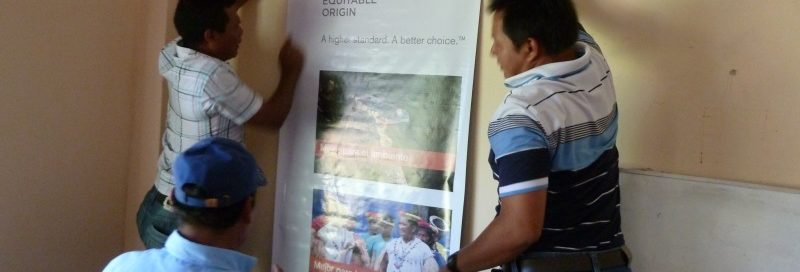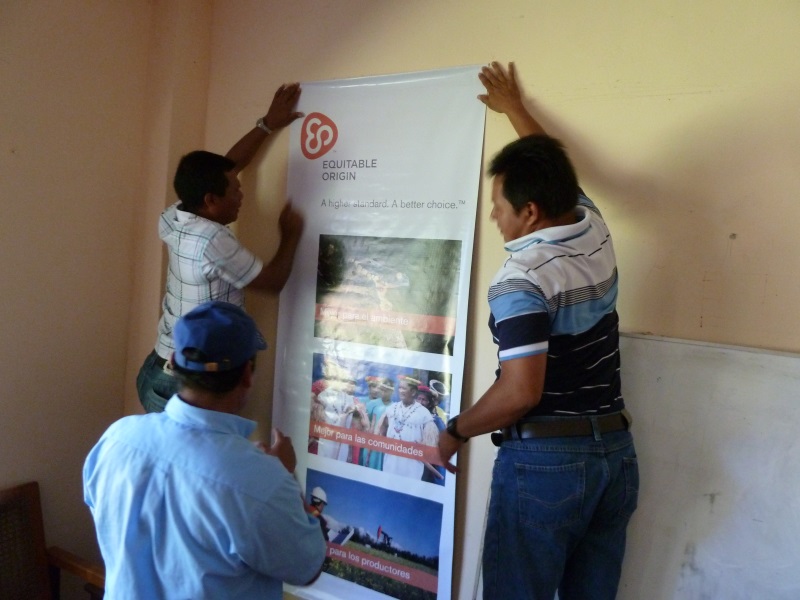
Beginning on September 1, 2014, Equitable Origin held a three-day workshop in Iquitos, Peru at the headquarters of the Organization of the Indigenous Peoples of the East (ORPIO) the regional subsidiary of the Interethnic Association for the Development of the Peruvian Jungle (AIDESEP) for the Loreto region of Peru. AIDESEP is a non-profit organization that since its founding in 1985 has radically opposed the incursions of Western-style development in the region. Recently however, the group has modified its position and now sees the need to be incorporated into models of sustainable development where indigenous people participate and receive benefits, the kind of model proposed by Equitable Origin. Oil and gas activities have been taking place for some time in the region, but AIDESEP, which represents all Indigenous organizations in Loreto, is now seeking effective participation in the development process.
The workshop was successful in fulfilling its agenda. The first day was devoted to explaining the design and development of the EO100™ Standard and the EO Certification System. The second day consisted of going over the principles, provisions and first-level performance targets of the EO100™ Standard and discussing and commenting on the scope of the content. The workshop finished discussing the Standard on the third day and moved on to evaluations and reflections on the meeting by the participants. Workshop attendees actively participated in the Standard review, offering many comments and suggestions on different Principles, emphasizing the Right of Indigenous Peoples in encouraging social and environmental best practices. The day closed with interviews with local media outlets and the signing of a manifesto in solidifying the relationship between Peruvian indigenous organizations and Equitable Origin. ORPIO and AIDESEP had heard of Equitable Origin before the workshop and were aware of EO’s work in Colombia and the first certification of the Pacific Rubiales site. This first site certification certification can serve as an example for Colombian companies operating in Peru – a model for how companies and local communities can come together at the negotiating table to discuss and plan socially responsible forms of development.
